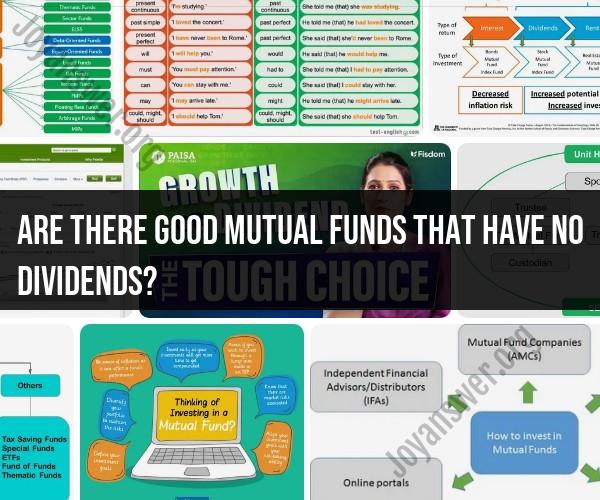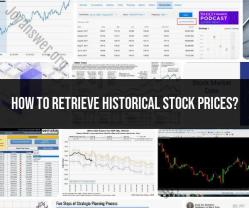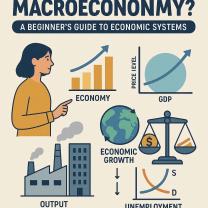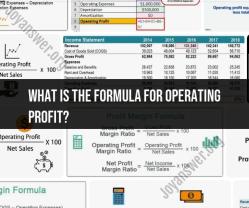Are there good mutual funds that have no dividends?
Yes, there are mutual funds that focus on capital appreciation and do not pay regular dividends. These funds are often referred to as "growth funds" or "capital appreciation funds." They are designed for investors who are more interested in seeing the value of their investments grow over time rather than receiving regular income in the form of dividends. Here are some key points to consider regarding mutual funds without dividends:
1. Growth-Oriented: These funds typically invest in companies that are expected to experience significant capital growth. They may focus on sectors like technology, healthcare, or consumer discretionary, which have the potential for higher earnings and share price appreciation.
2. No Regular Dividends: Unlike dividend-focused funds, growth funds do not pay out regular dividends to investors. Instead, they reinvest any income generated from the underlying investments back into the fund to fuel capital growth.
3. Long-Term Capital Appreciation: Investors in these funds are often looking for long-term capital appreciation, which means they expect the value of their investments to increase over time. They may plan to sell their shares at a later date to realize a profit.
4. Volatility: Growth funds can be more volatile than income-focused funds because they are invested in companies with higher growth potential, which may come with higher risk. Investors should be prepared for fluctuations in the fund's value.
5. Diversification: Just like any other mutual fund, it's essential to ensure that your investment is diversified across various assets and sectors to spread risk. Diversification can help reduce the impact of poor performance in any single investment.
6. Investment Goals: The decision to invest in a mutual fund without dividends should align with your investment goals and risk tolerance. If you require regular income from your investments, these funds may not be suitable.
7. Taxes: While growth funds do not distribute dividends, investors may still incur capital gains taxes when they sell their fund shares at a profit. Capital gains taxes are typically lower than income tax rates, but the tax implications should be considered.
Overall, whether mutual funds without dividends are worth considering depends on your investment objectives and preferences. If your primary goal is to build wealth over the long term and you can tolerate the potential for higher volatility, growth funds may be a suitable option. However, it's advisable to consult with a financial advisor who can assess your financial situation and help you select the right investment vehicles to meet your specific goals and risk tolerance.
Dividends and Mutual Funds: Finding the Balance for Your Portfolio
Mutual funds can be a great way to invest in the stock market, and many mutual funds pay dividends. However, it is important to understand how dividends work and how they can affect your investment portfolio.
Dividends are payments that companies make to their shareholders out of their profits. Dividends are typically paid quarterly, but some companies pay dividends monthly or semi-annually.
When you invest in a mutual fund, you are essentially buying a basket of stocks. If the mutual fund invests in companies that pay dividends, you will receive a portion of those dividends.
Dividends can be a good way to generate income from your investments. However, it is important to note that dividends are not guaranteed. Companies can reduce or eliminate their dividend payments at any time. Additionally, dividends are taxed as ordinary income.
When deciding whether or not to invest in a dividend-paying mutual fund, it is important to consider your individual investment goals and risk tolerance. If you are looking for a steady stream of income, you may want to consider investing in a dividend fund. However, if you are more interested in capital appreciation, you may want to consider investing in a fund that does not pay dividends.
Mutual Funds without Dividends: Exploring Alternatives for Investors
There are a number of mutual funds that do not pay dividends. These funds are often referred to as growth funds. Growth funds typically invest in companies that are expected to grow their earnings over time.
Growth funds can be a good option for investors who are looking for capital appreciation. However, it is important to note that growth funds are riskier than dividend funds. This is because growth funds invest in companies that are typically more volatile.
Here are some of the benefits of investing in mutual funds without dividends:
- Potential for higher returns: Growth funds have the potential to generate higher returns than dividend funds over the long term. This is because growth funds invest in companies that are expected to grow their earnings over time.
- Tax efficiency: Growth funds are typically more tax-efficient than dividend funds. This is because investors only pay taxes on their capital gains when they sell their shares.
However, there are also some risks to consider before investing in mutual funds without dividends:
- Higher risk: Growth funds are riskier than dividend funds because they invest in companies that are typically more volatile.
- No guaranteed income: Growth funds do not pay dividends, so they do not provide a guaranteed stream of income.
Diving into Mutual Fund Options: Strategies for Dividend-Seeking Investors
If you are looking for a steady stream of income from your investments, you may want to consider investing in a dividend-paying mutual fund. There are a number of different types of dividend funds available, so it is important to choose one that is right for you.
Some of the factors to consider when choosing a dividend fund include:
- Dividend yield: The dividend yield is the percentage of the fund's share price that is paid out in dividends each year.
- Fund expenses: The fund expenses are the fees that are charged to manage the fund.
- Fund's investment objective: The fund's investment objective is the type of companies that the fund invests in. For example, some dividend funds invest in large-cap companies, while others invest in small-cap companies.
Here are some strategies for dividend-seeking investors:
- Reinvest your dividends: Reinvesting your dividends will allow you to compound your returns over time.
- Invest in a diversified portfolio: Don't put all your eggs in one basket. Invest in a variety of dividend funds from different industries and sectors.
- Monitor your investments regularly: Make sure that the funds you are invested in are still financially sound and that their dividends are still safe.
By following these strategies, you can increase your chances of success as a dividend-seeking investor.












